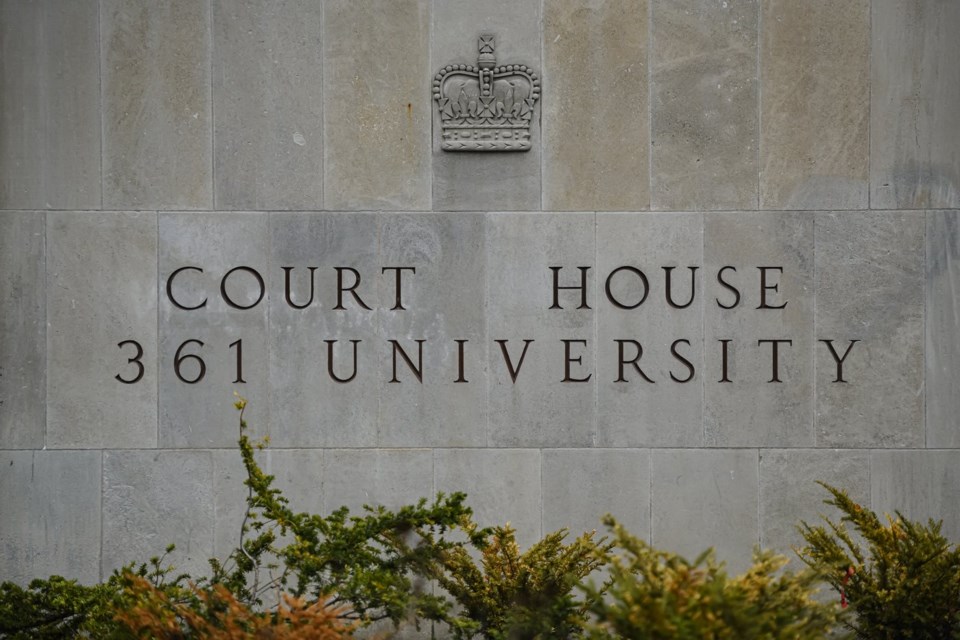OTTAWA — Two First Nations have launched a court application against the lawyers who helped bring forward a $10-billion settlement with Canada and Ontario, saying the $510 million they're set to be paid is too much.
They also allege the lawyers tried to shut down discussions about the fees in an April meeting, saying they would "lose confidence" in the trustees of the settlement if the sum wasn't accepted.
"I do want to say we're very grateful for the results that were achieved by lawyers, and we believe that the lawyers should be well-awarded for their services," said Atikameksheng Anishnawbek Chief Craig Nootchtai.
"But we do not agree that a ($510-million) legal fee is fair and reasonable."
The Robinson Huron Treaty settlement, reached last year, sought to remedy unpaid treaty annuities for 21 First Nations.
The First Nations said the $4-per-person annuity had not increased since 1874, which breached the treaty because resource extraction projects have used their land for generations, generating profits that far exceeded what their memberships received.
Lawyers who argued for the settlement sought $510 million in legal fees for their work, saying half of that would be used for more work on the treaty, including further litigation, and community projects.
But Atikameksheng Anishnawbek and Garden River First Nation say the First Nations have already paid millions of dollars in legal fees, with many taking out loans to do so, and are asking Ontario's Superior Court to reconsider.
"The legal fee is extremely over-the-top," said Garden River First Nation Chief Karen Bell.
She said she has an "obligation to seek accountability and transparency," and the application should not disrupt payments to beneficiaries. Those payments are scheduled to start flowing in August.
Nahwegahbow Corbiere Genoodmagejig Barristers and Solicitors, who is named in the court application, did not immediately respond to a request for comment.
The other 19 First Nations have not officially supported the application as of yet, but Nootchtai hopes they will as the process moves forward.
The application, filed Friday, requests that the firm "preserve all records of any kind related to the discussion, negotiation, review, invoicing and approval of the legal fees."
It also requests the $510 million be held in trust until they come to a solution.
Nipissing First Nation Chief Scott McLeod, whose community is part of the Robinson Huron Treaty, said chiefs discussed the legal fees at a recent meeting where lawyers said they realized the payment, which amounts to five per cent of the settlement, was high.
He said the law firm proposed cutting its fees in half and using that money for things like language preservation, but some chiefs proposed a legal review of the fees instead.
"The chiefs saw that (review) as not being fair to the lawyers," said McLeod, who added that most were content with the arrangement.
But McLeod questioned why chiefs should be "dictated" to about where they can spend that money, and asked about the bill at large. He said it's proper due diligence to question the lawyers' bill on behalf of community members even though the lawyers did good work to get the settlement finalized.
"There needs to be some in the room that need to ask critical questions," he said.
"But going this court route, I don't think that they're going to get much support."
The court application alleges the lawyers "sought to discourage an assessment of the legal fees" in an April meeting, and told trustees doing so would delay the distribution of the settlement to members. It says lawyers also told trustees if they didn't accept the legal fees, they would "lose confidence" in the Robinson Huron Treaty Litigation Fund for failing to honour the partial contingency fee agreement.
Other lawyers who have worked settlements for First Nations have been similarly critiqued, including by Cindy Blackstock.
Blackstock, one of the people responsible for bringing forward a Canadian Human Rights Tribunal case that led to a historic $40-billion class-action lawsuit against Canada for the chronic underfunding of on-reserve child welfare services, took issue with the $55-million legal bill for lawyers who worked on the case.
She questioned last November why the people at the centre of the case — some 300,000 people who had been victimized by the state — would receive around $40,000, while lawyers took home much more.
Lawyers, meanwhile, wrote in affidavits that their fees could have been much higher had they followed traditional fee retainer agreements.
This report by The Canadian Press was first published June 10, 2024.
Alessia Passafiume, The Canadian Press



